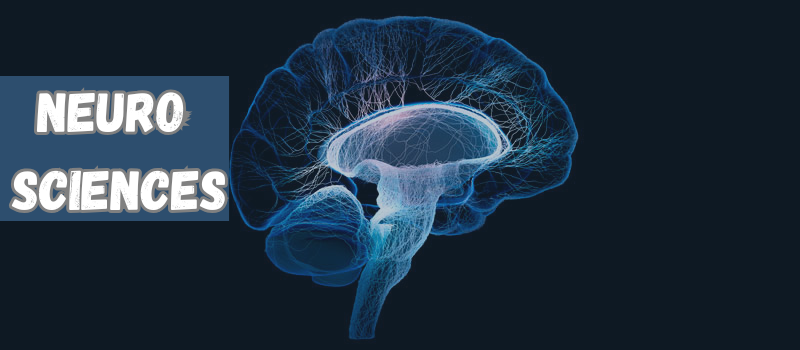The human brain is a remarkable organ responsible for everything from basic survival instincts to complex thought processes neuroscience the study of the nervous system delves into how our brains function adapt and influence our behavior understanding the secrets of neuroscience can provide insight into memory emotions decision-making, and even ways to enhance cognitive abilities one of the most fascinating aspects of neuroscience is neuroplasticity the brain ability to rewire itself in response to experiences and learning.
Neurotransmitters like dopamine and serotonin play a crucial role in regulating mood and motivation highlighting the connection between brain chemistry and mental well-being advancements in neuroscience have also led to breakthroughs in treating neurological disorders like Alzheimer and Parkinson offering hope for future medical innovations by exploring the intricate workings of the brain scientists continue to uncover ways to optimize human potential making neuroscience a field of endless discovery.
The Brains Ability to Adapt:
One of the most remarkable discoveries in neuroscience is the concept of neuroplasticity the brain is not a static organ rather it has the ability to change and adapt in response to experiences learning and even injuries this adaptability is what allows people to develop new skills recover from brain damage and rewire negative thought patterns.
Example: Consider a stroke survivor who has lost motor function in one arm through rehabilitation and persistent practice other parts of the brain can take over the lost functions allowing the patient to regain movement similarly when someone learns a new language or musical instrument their brain creates new neural pathways reinforcing memory and cognitive function.
The Power of Mirror Neurons:
Mirror neurons are specialized cells in the brain that fire both when we perform an action and when we observe someone else performing the same action this discovery sheds light on why humans are naturally empathetic and capable of understanding others emotions intuitively.
Example: When you see someone yawn you might find yourself yawning too this is due to mirror neurons activating in response to another person action on a deeper level these neurons help explain why we feel sadness when we see someone crying or joy when we witness someone success this ability to mirror emotions is the foundation of human social interactions and emotional intelligence.
Sleep and Memory Consolidation:
Sleep plays a crucial role in memory consolidation the process by which the brain strengthens and organizes new information for long-term storage during sleep particularly in the deep and REM (rapid eye movement) stages the brain actively processes experiences reinforces learning and clears out unnecessary data this is why getting enough rest is essential for retaining knowledge problem-solving and overall cognitive function without proper sleep the ability to recall information and make connections between ideas weakens leading to forgetfulness and difficulty in learning new things.
This is because sleep stabilizes and integrates memories making them more resistant to interference the brain reorganizes information during sleep linking it to prior knowledge which enhances creativity and problem-solving skills poor sleep habits disrupt this process leading to mental fatigue reduced focus and impaired decision-making to optimize memory consolidation maintaining a regular sleep schedule creating a restful environment and avoiding caffeine or screen exposure before bedtime can be beneficial.
The Science of Stress and Its Effects on the Brain:
Stress is a natural response to challenges but when it becomes chronic it can have serious effects on the brain when a person experiences stress the body releases hormones like cortisol and adrenaline which help in short-term situations by increasing alertness and energy prolonged stress leads to an excess of these hormones which can harm brain function over time High levels of cortisol can shrink the hippocampus the part of the brain responsible for memory and learning.
It harder to concentrate and retain information at the same time it strengthens the amygdala the brain fear center making a person more prone to anxiety and overreacting to situations chronic stress disrupts the balance of neurotransmitters like serotonin and dopamine which are essential for mood regulation often leading to depression and mood swings over time the brain struggles to function optimally impacting overall well-being.
Conclusion:
The insights gained from neuroscience have profound implications for personal development education and overall well-being by leveraging neuroplasticity we can rewire our brains for positive habits understanding the role of mirror neurons can enhance our empathy and social interactions.
Recognizing the subconscious influences on decision-making can lead to better self-awareness managing dopamine levels can prevent addiction-like behaviors while prioritizing sleep can enhance memory and cognitive function finally reducing stress through mindfulness can protect our brains from long-term damage.
FAQS:
1. What is neuroscience?
Neuroscience is the scientific study of the nervous system including the brain spinal cord and neural networks that control behavior thoughts and emotions.
2. Why is neuroscience important?
Neuroscience helps us understand how the brain functions how we learn how emotions work and how to treat neurological disorders such as Alzheimer Parkinson and depression.
3. What are the main branches of neuroscience?
Cognitive neuroscience: (studies brain function related to thinking memory and decision-making)
Behavioral neuroscience: (examines how the brain influences behavior)
Molecular neuroscience: (focuses on how neurons and chemicals interact)
Clinical neuroscience: (applies neuroscience to treat neurological and psychological disorders)
Computational neuroscience: (uses mathematical models to understand brain processes)
4. How does the brain process information?
The brain processes information through a network of neurons that communicate via electrical and chemical signals these signals help with sensory perception memory formation and decision-making.
5. Can neuroscience explain consciousness?
Consciousness remains one of the biggest mysteries in neuroscience while studies have linked brain activity to conscious experience the full explanation is still unknown.
